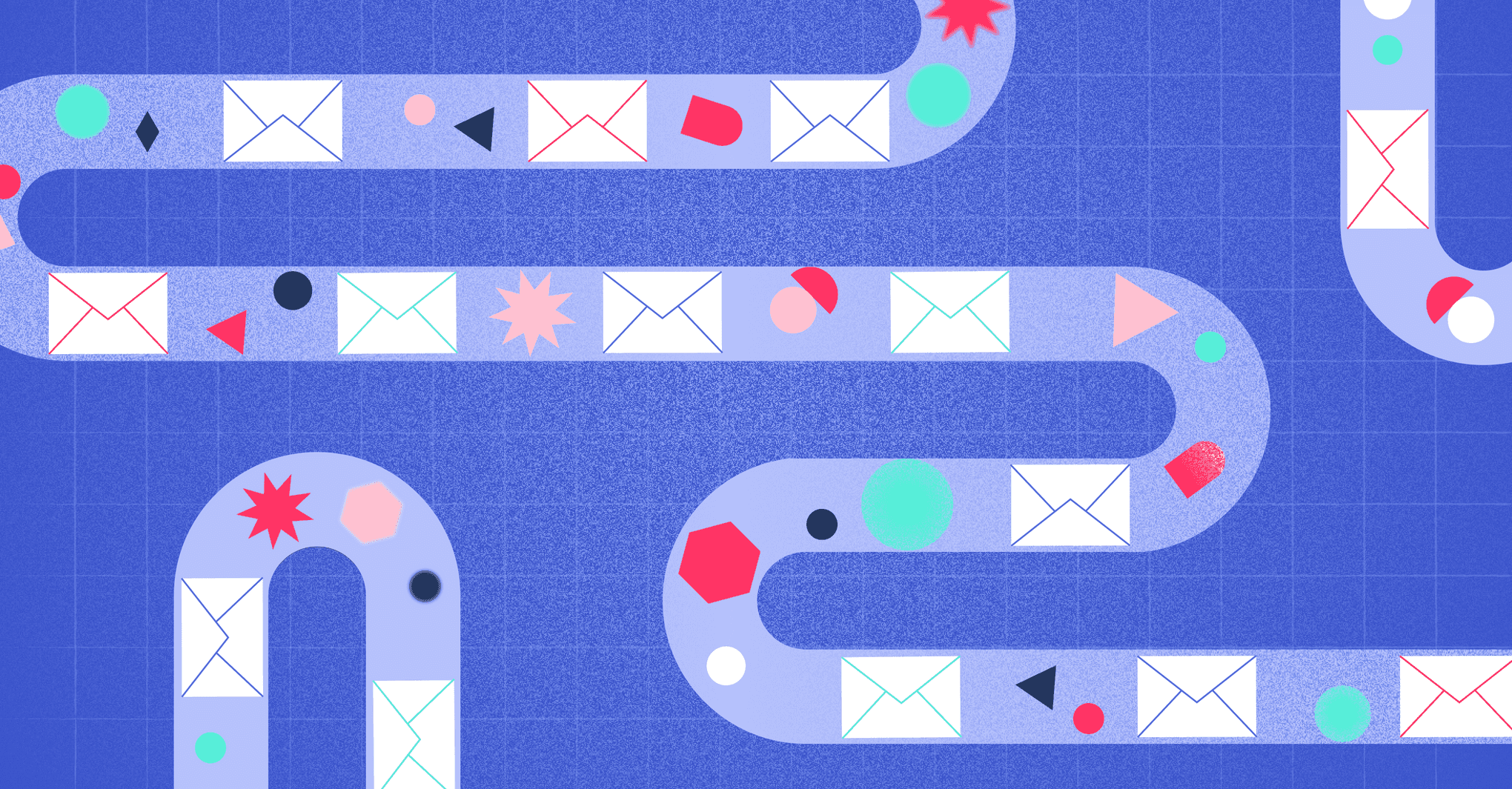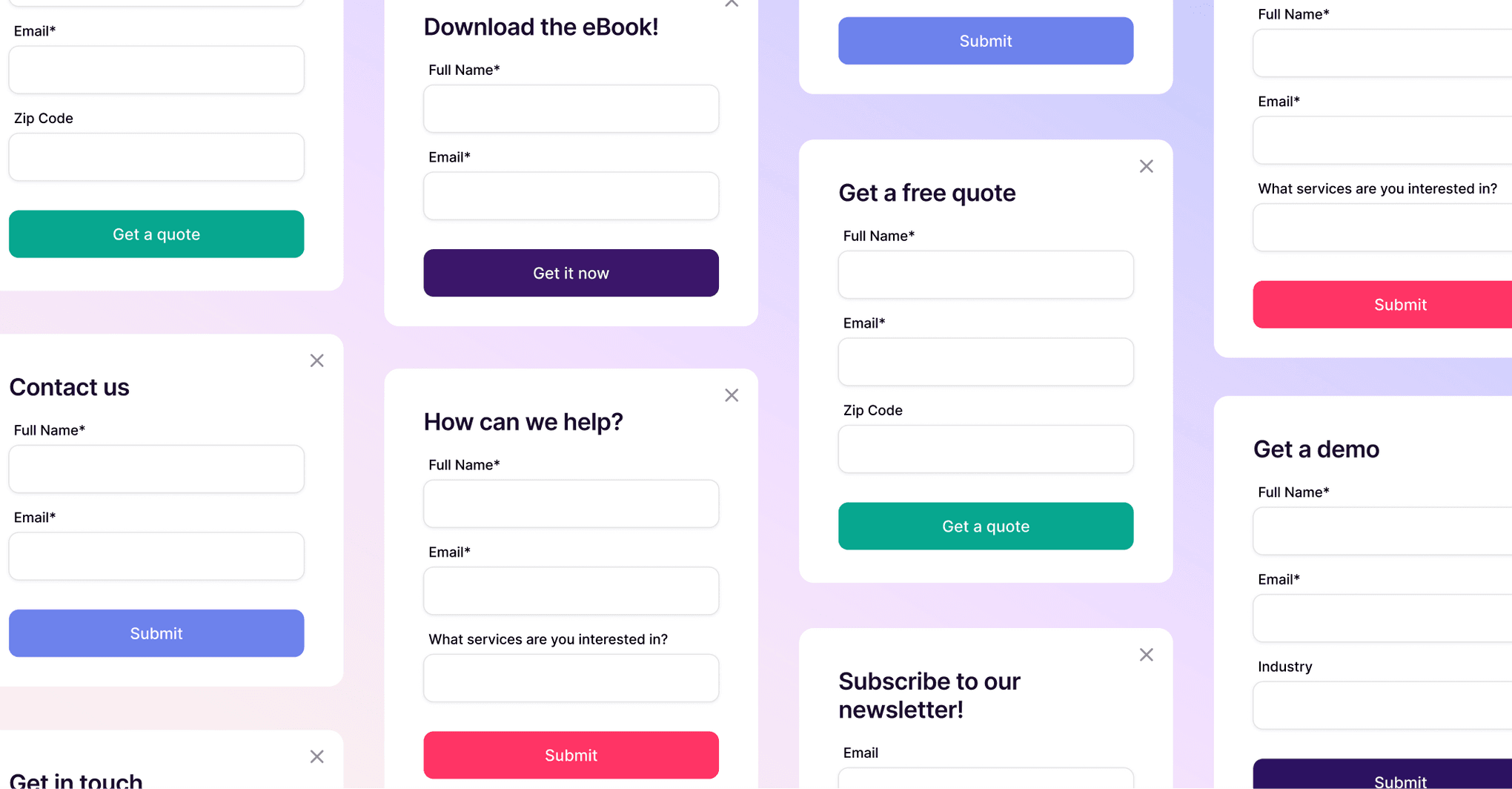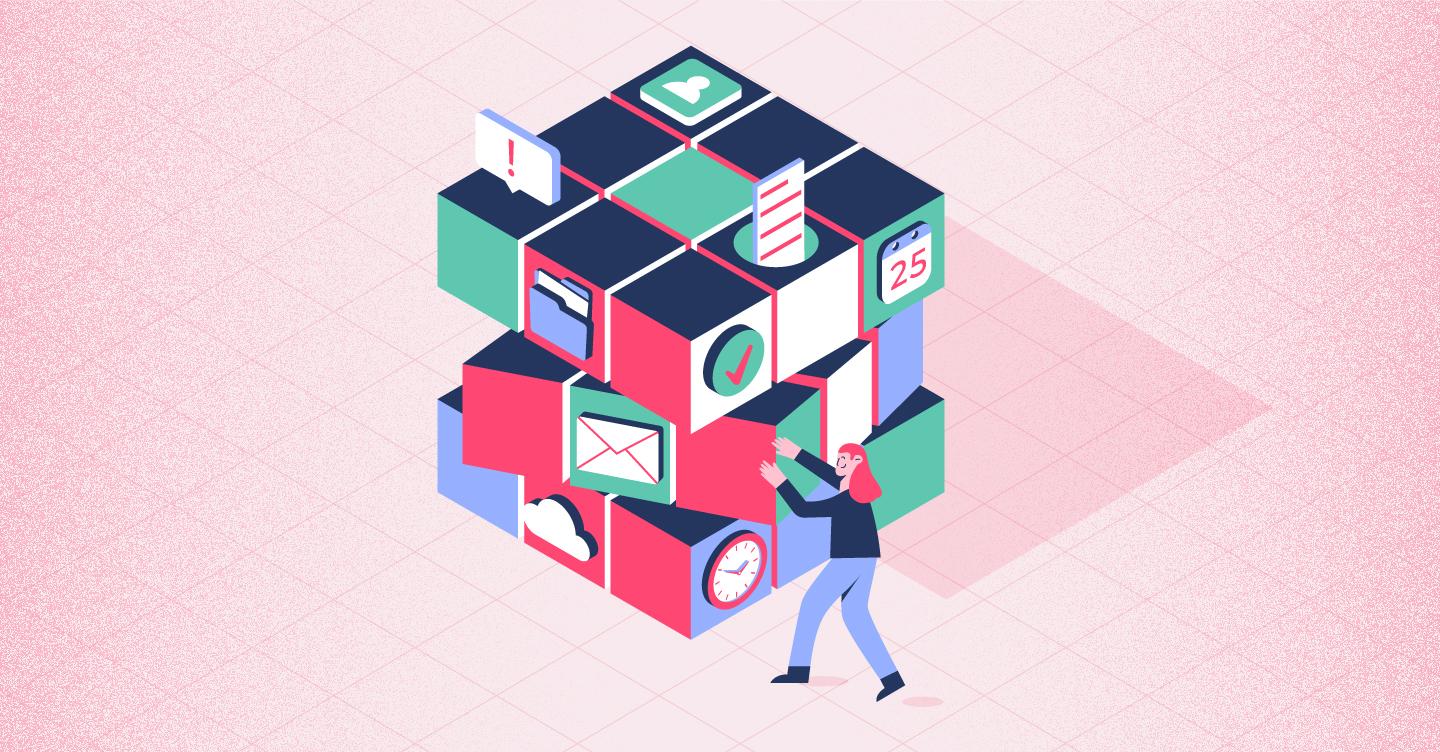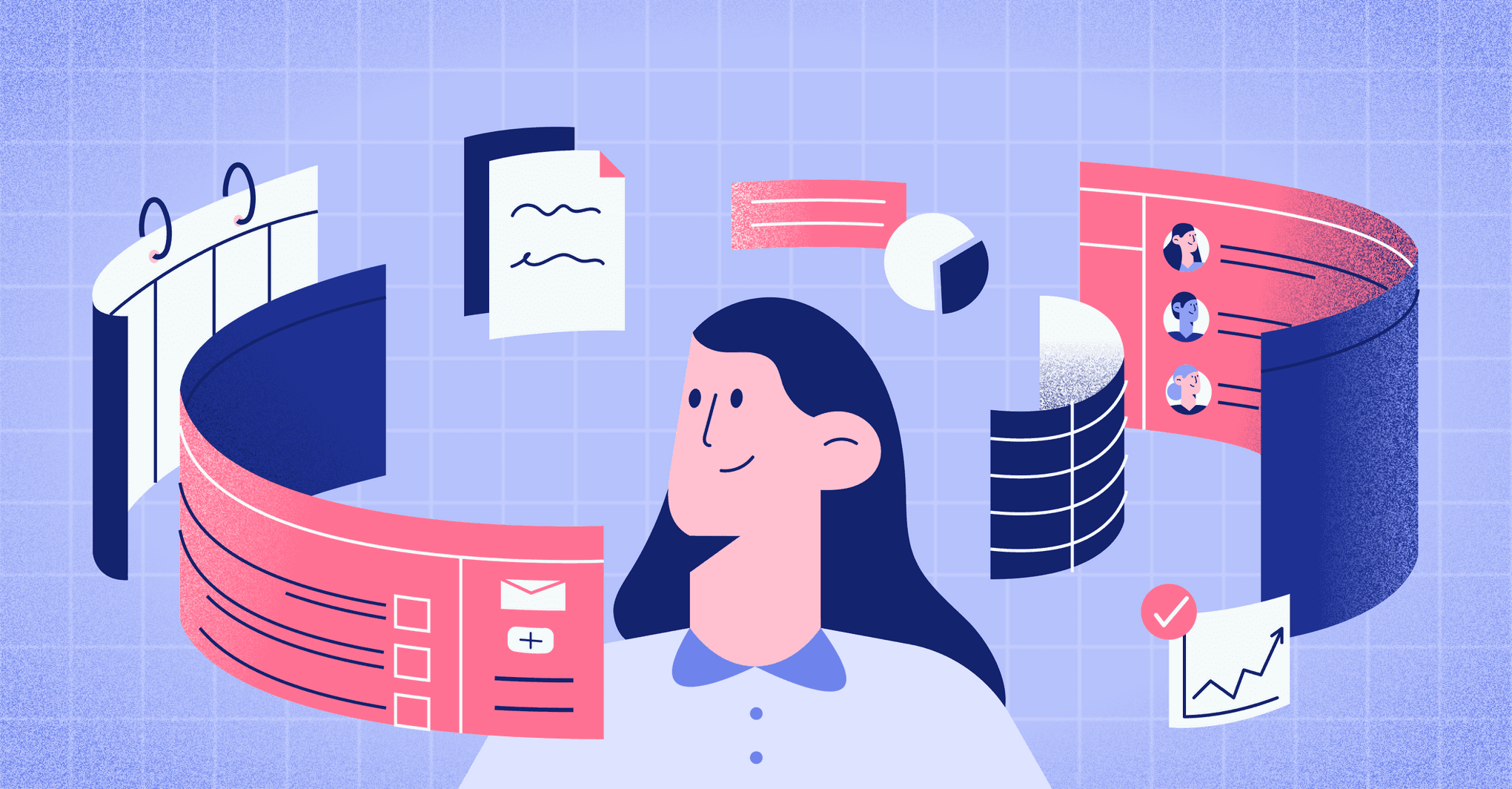Christina Scannapiego
Director, Content Marketing
2023 graced Copper with a brand new CEO. And while Carrie Shaw was no newcomer to our organization, as a long-time marketing exec, the step marked her first into the role of CEO. Carrie’s journey to the position combines her years of marketing leadership with a past in product management, making her a natural fit to head up the evolving Copper organization. We sat down with her for a good chat, so that you could get to know her — and how she’s approaching her new role — a little bit better.
Copper: You just completed your first quarter since your transition from our CMO to CEO. What feels like the biggest change?
Carrie Shaw: Oh, we’re starting with an easy one {laughs}.
In some ways my job is the same, just more broadly scoped. I have to have a vision. I have to find and retain the best people to execute that vision. I have to focus maniacally on customers and their experiences with Copper. I have to communicate and coach and have empathy. These are all things I tried to do as a CMO, just with a departmental – as opposed to a whole-company – focus.
In other ways, it’s very different. I have to make tougher decisions, and I have to make them more frequently than I did as CMO. And generally speaking I have to make them with highly imperfect information. I wasn’t anticipating the collapse of SVB, for example. I had no precedent for the threat of destruction of our corporate banking strategy (which ended up being totally fine, by the way). But no one prepares you for these types of things. I’m also learning how to manage a board of directors. Managing a venture-based board is its own skill. It’s new to me and I still lean heavily on Dennis (former CEO, now chairman).
I think the nice thing about appointing somebody from inside of the organization, rather than bringing somebody in from outside, is that there was virtually no disruption to the business. We didn’t miss a step. In that respect I am incredibly grateful for having inherited a team of incredible people who all want nothing but the best for our customers.
Have there been any big surprises?
Not really. I walked into this with my eyes wide open. Some days, I find that I have to step away from my desk to do the work. Because the work is planning and strategizing; not sitting there typing. I have to play chess games in my head; figuring out what all of my moves are, what all the potential other moves are — and that's a very different kind of work. Whereas a challenge in the past might have been to get a creative brief right, a challenge now is to solve for how conversations should unfold to get to the best possible outcome.
The job of a CEO is less creative than the job of a CMO and I miss the creative aspect. But I do get to flex my creative thinking muscles, more so in a problem-solving capacity.
You’ve followed an interesting journey to lead you to this point. You majored in English — and Computer Science, so you’re a bit of a hybrid of creative and analytical. Then a door in product management opened for you. Can you tell me about how you married the two to pursue your career?
I was in product management for about 10 years and I still use that background almost every day. And the fact that Copper is in the process of launching a new product means that I'm using it even more.
My roots in product management — it was a much more technical role than marketing — exposed me to the day-to-day ins and outs of what it takes to build and test software, ship it, and maintain it. As a product manager, you don't get to sit in a box and just design something and then hand it off and move on to the next thing; you have to see it through all the way to the end — and beyond. That's an invaluable skill to have being a leader in tech.
Between CMO to CEO, one major consistency in your leadership is that you’ve always had empathetic relational skills. And it seems that working so hands-on with product lended to that skill, too.
Yeah, one of the main things that came out of it was the teaching of empathy; the realization that I was designing software for people who weren’t like me and in order to be able to do that, I really had to be able to step out of my own biases and put myself in the shoes of our customers to think the way they would think about something … and that’s an incredibly valuable skill. In this business, you’re nothing if you’re not thinking about your customers.
But I'm also naturally approachable and I'm always thinking about how other people are feeling. And I think that those things definitely help. I have a lot of natural capabilities there, but now as the CEO, I have to think very, very carefully about the outcome I want and how I can drive towards that outcome rather than just dictating everything.
Get the latest from our blog every month
And in addition to the role of Copper’s leader, you’re also a mom. What was the last, most significant piece of education or career advice you gave your daughter?
Well, we recently talked about her post-secondary education. She's already worried that she doesn't know what she wants to study (she's 13!). I told her that it was perfectly ok not to know, and for right now to stay open to all the things and just explore and observe without judgment.
I want her to be bold and take chances with her career, like I did. No matter where I end up, I’ll look back on my life and be able to say I did things that weren’t expected of me, and more importantly, I never got too comfortable. I was always seeking new experiences. I wholeheartedly believe that if opportunities come our way it is almost always better to take them than not to take them (within reason of course!) Very few of us are specialists from a young age. I wasn’t, and my daughter’s not. So the trick for people like us is to be open to experiences and not to judge ourselves for not knowing exactly what it is we want to do.
Do you have any advice for anyone who may feel reluctant to take on the financial burdens of higher education — but who want a career in, say, tech?
One of the nice things about tech is that it really doesn't ask for privilege. It doesn’t require a bachelor’s, or an MBA, or any kind of specific post-secondary accreditation. We have so many examples of highly successful tech entrepreneurs who never went to college. Today you can self-teach, take online courses, sign up for bootcamps. Those avenues were not available to us when I came out of university. But they are now and they are great.
This has changed my perspective on hiring. When I was younger, I used to require university degrees from the people I interviewed and, at the time, I felt that only a university education could prepare you for what it was going to be like in the workforce. I don't feel that way anymore at all.
Yeah, I'm seeing that a lot and it makes sense — I know a lot of smart Gen Zers who are like, “Why am I gonna pay for it? It’s too expensive. I'm just going to do a boot camp and learn what I need to — ”
— Plus, if you have a passion for a specific path, a university may not be your best choice. You know, my daughter is getting very into digital design and there are schools that have good, if not better programs than universities for the kind of work that she wants to do right now, you know? It’s a diploma, it's not a university degree. She’s already at the point where she prefers to self-teach from the Internet than she does to learn that skill in middle school. She can move faster, learn faster, and essentially create her own curriculum.
Which is interesting because you were a humanities major. So in light of what you’ve just explained, how do you feel about the decline of the humanities in higher education?
I saw an article in the New York Times today about how the proportion of people majoring in English has dropped, like, by a third — and they were blaming it on the high school curriculum, which they say has gotten so bad that it's making all the kids hate it and so nobody's interested.
I look back on my university education and I think about the things that really stayed with me and made me who I am. There is a component of the humanities that I'm worried we’re going to lose — the sort of deep and critical thinking about a whole body of work. We did a lot of critiquing in school, on works from extremely diverse authors… Whitman to Paglia to Shakespeare. To be honest I didn’t even love it, but it was really good for me – it turned me into a critical thinker. It's this idea of reading something, going deep enough to truly understand what the author was going for, and then developing theories about a work’s meaning and implications. There was a depth to the work we did that I am afraid is getting lost.
I think the problems that have arisen with social media, for instance, and shorter attention spans, indicates the loss of a humanities education and the inclination to think deeply about a subject. The new generations’ brains have been wired differently because they're so digitally native and they've been trained to switch contexts a hundred times a minute since they were seven years old (or younger). I’m a little worried that we're losing our ability as a population to think deeply about things. And that's one of the best things that I got out of my university education; this sort of patience to sit down and really be with a piece of work for a long time. Even when I didn't love it, I felt like I developed a really solid understanding of it. And I don't want us to be a population of shallow thinkers.
OK, returning to your backstory — it makes a lot of sense given where you are on your journey now.
Yeah, I was an interdisciplinary kid. Even in high school, I thought I was all English Lit all the time, and then I took my first computer science class and discovered I loved coding. My undergraduate thesis was on the anatomy of a hyperlink, back in the very very early days of the Web, when Netscape was the browser, and we were just starting to see people clicking around from page to page and generating links from one page to another. I ran usability tests on the position of links, the placement of links, the color of links — you know, the blue hyperlink contrasting against headlines and then looking at how people use them. So I was always interested in the intersection of technology and communication, right from the start, even as an English major.
But even so, at the time, it was unusual for Microsoft to hire an English major as an intern, when all of the job descriptions explicitly said “We only accept applications from engineers and computer science students." I applied anyway. I said, “screw that, what do I have to lose?”
Turns out the guy who was interviewing for internships, this guy named John Fine, who was awesome — he was one of the pioneering interdisciplinary technologists and had a degree in philosophy, so he didn't buy into the rule either. A bit of luck there. In another year it could have been a different interviewer who didn’t think that flexibly. It changed my life, going to Microsoft after university.
So if you could go back and tell the kid version of yourself what you’re doing now, what do you think she’d say?
She’d say: “WTF? I thought you were going to be a writer! I didn't even know you could code!”
Would you need to convince her of anything?
I think I’d need to convince her that I still plan to write a book one day. Maybe.
Cool. Well you never know what doors are going to open. And fast forward a decade, you were actually a Copper customer before ever thinking you’d work here, much less become the CEO. What was your impression of Copper at the time? And objectively, has it changed?
So by the time I got to be the Chief Marketing Officer at Quandl, I had a very diverse background of different roles at different companies. And in almost every case, our CRM was Salesforce. I'd also owned a complex implementation of Salesforce at one of those companies, where I had to hire not only a Salesforce administrator, but a Salesforce developer, and we had to write a lot of custom code. And it was like using software that was designed in 1975. It was a poor experience. We finally got it to sort of bend to our will, but it took so much effort and time. So, when I got to Quandl, I started looking for a new CRM. I started looking at Pipedrive and Copper (Prosperworks at the time). I wasn’t interested in Hubspot, whose CRM was still new at the time, and I didn’t like the way they pushed me to buy their marketing tools. They were really aggressive. So we used the Copper free trial, and everybody was like, “this is the easiest, most simple thing in the world." Our sales people loved it because they used the Chrome extension and didn’t even need to be in the CRM.
We were a customer for four years. We never once thought about replacing it, or upgrading, or worried that it didn’t meet our needs. It was the heartbeat of our tech stack and it worked so well for us.
So clearly Copper exists in a very competitive market with a ton of solutions available for any business. What gap do you see Copper filling?
I think Copper fills the gap for SMBs in the Google Workspace world. Most CRM systems cater to larger companies, because it's better for the providers themselves (higher price points, bigger deals, lower churn). Unfortunately that leaves SMBs with more limited options or, even worse — they try to do their CRM work in a spreadsheet or project management tool — which never works. Copper is a beautiful, easy-to-use, easy-to-deploy solution for businesses with dozens to hundreds of people with tight integration with Gmail and Google Calendar. That's our sweet spot.
Everybody wants to talk about ChatGPT. There’s so much hype around it and what it may or not be able to accomplish. In your opinion, what’s actually exciting about it – and what’s cringey?
I have to start by saying I’m a big science fiction fan and that may bias my opinion towards the more, ahem, conspiratorial {laughs}. In sci-fi, AIs are usually evil. Like Black Swan, from Wanderers; or Ultron from the Avengers (although to be fair, there’s also Jarvis, who is good). I could go on. But I will say on a macro level, I have concerns. I’m worried about Geoff Hinton’s departure from Google and his recent remarks, and I’m worried that there’s such a rush to dominate the space that mega-tech companies are risking too much. I’m worried that we’ll no longer be able to discern truth from lies — already a growing problem — and that we don’t truly know if this technology is controllable.
From the more benign standpoint of Copper, what I’m seeing at the moment are a lot of competitors rushing to announce that they’re AI-enabled — but what they’re really doing is launching experiments. There’s nothing wrong with that as long as people are aware, but there’s nothing world-changing yet.
The use case I am most excited about for us (and we’re working on it) is using AI to synthesize, summarize and understand a business relationship based on all the inputs across the board like emails, transcripts, texts and chats. To be able to do that without having to comb through and interpret everything on your own is immensely valuable, especially if it can be followed up with recommendations for next steps. We had thought about doing this in Copper prior to AI — it was an experiment called Insights, but we ditched it because algorithmically it was too challenging to implement and get it right. AI makes it far more feasible (if you have the requisite permissions). Using AI responsibly is possible, and we have to ensure we do that.
Lastly, if you were a CRM software feature, what feature would you be and why?
I think I’d be a filter on list views. I love the idea of picking a big list apart and winnowing it down to the things that matter. I have to do that every day; I’m inundated by things that may or may not need my attention, and I have to constantly figure out how to identify what gets my time and what doesn't. Plus, as you know, I'm a huge fan of ruthless prioritization. Most things don't matter. My job is to find the few that do and act on them, swiftly and decisively. Like a filter.
Hear more from Carrie in her recent interview on the Entreprenista podcast.






